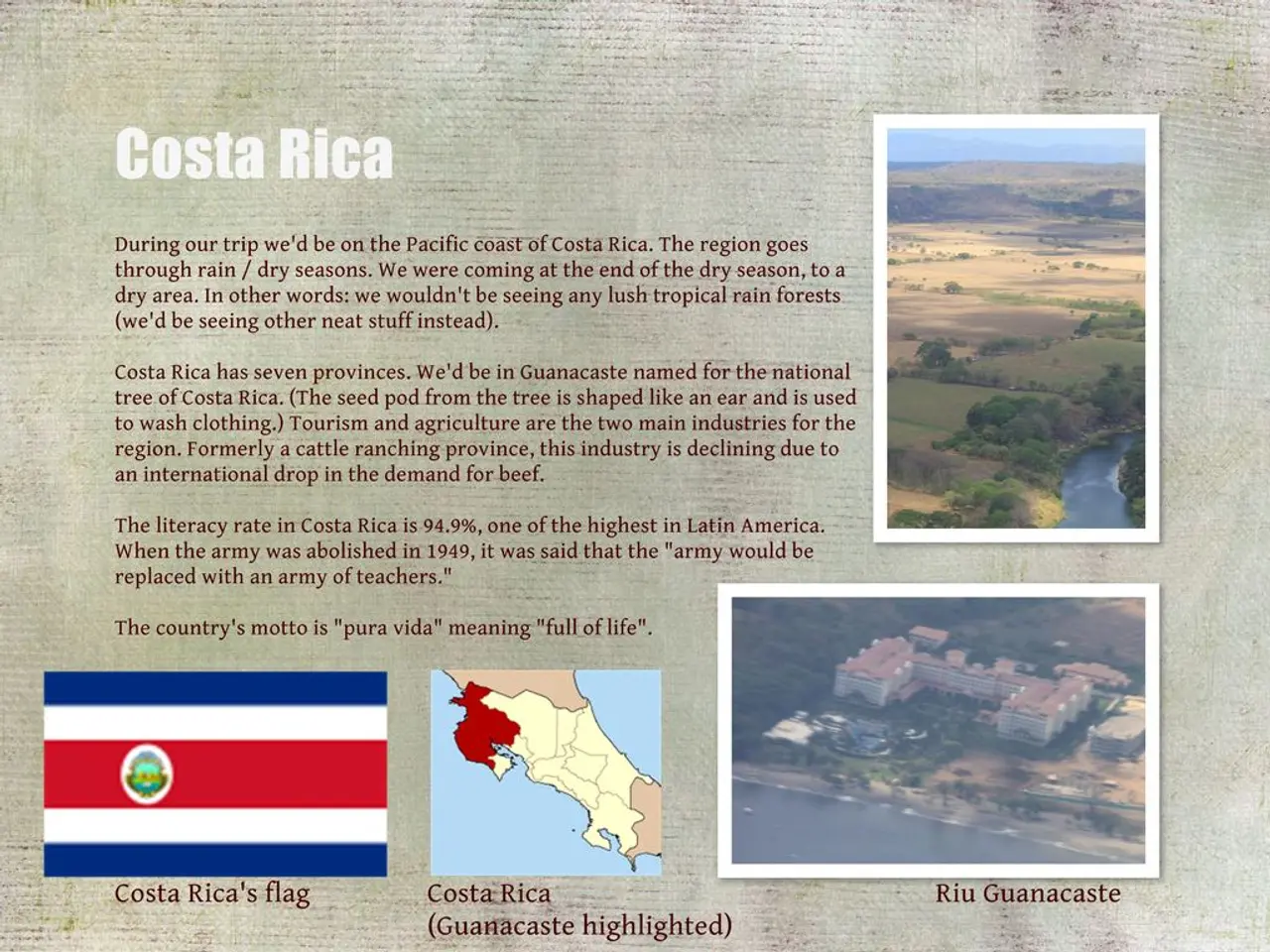El Salvador's Crypto-Forward President May Hold Office for Extended Period Following Constitutional Alterations
El Salvador's Constitutional Changes Alter Democratic Landscape
El Salvador's democratic stability and constitutional framework have undergone significant alterations following recent changes that allow for indefinite presidential reelection and extend presidential terms from 5 to 6 years. These constitutional reforms, approved by the Legislative Assembly dominated by President Nayib Bukele's party, effectively enable Bukele to remain in power indefinitely [2][3][4].
The changes have raised serious concerns about the erosion of democratic institutions and the rule of law in El Salvador. Reports from July 2025 highlight a broader context of repression, dismantling of civic oversight, and the weakening of the rule of law. Human rights defenders, journalists, political opposition members, and other critics face criminalization, harassment, forced exile, and detention without due process guarantees under a state of exception, which has led to tens of thousands being imprisoned in harsh conditions [1].
The constitutional reforms abolish term limits for the president, granting President Bukele the ability to run for president indefinitely. This political shift is accompanied by growing repression of civil society, restriction of democratic space, and weakening of judicial independence. As a result, El Salvador’s democratic stability is widely viewed as deteriorating, with increasing authoritarian tendencies under Bukele’s government [1][2][3][4].
One of the three dissenters in the vote, Marcela Villatoro, warned that democracy would be weakened with the changes. Bukele's government holds nearly $550 million of foreign exchange reserves in bitcoin, which amounts to about 15% of the total. The International Monetary Fund (IMF) may take action since El Salvador violated its agreement, but the government needs to hope the price of crypto does not plummet.
Bukele, a far-right crypto enthusiast who has allied with President Donald Trump, was re-elected in 2024 under dubious circumstances. In April 2021, Trump met with Bukele in the White House and shipped migrants to El Salvador. Bukele's government signed a secret pact with gang leaders in 2019 to dial back violence in exchange for financial incentives.
The changes also extend presidential terms from five years to six years. Since Dec. 19, 2024, El Salvador has added at least 240 BTC to its crypto holdings, despite an agreement with the IMF to scale back its crypto project. Lawmaker Ana Figueroa from the New Ideas Party has suggested moving up Bukele's re-election to June 1, 2027. As of now, Bukele has not tweeted about the constitutional changes.
Reports from migrants sent to El Salvador have described horror stories of being beaten, given dirty water, and sexually assaulted. These allegations underscore the need for transparency and accountability in El Salvador's government. The potential for Bukele to remain in power indefinitely raises concerns about the future of democracy in the country.
[1] Human Rights Watch. (2025). El Salvador: Deteriorating Human Rights Situation Under Bukele Government. [2] The New York Times. (2024). El Salvador's President Nayib Bukele Wins Re-election in Controversial Vote. [3] The Washington Post. (2024). El Salvador's President Nayib Bukele Wins Re-election in Controversial Vote. [4] CoinTelegraph. (2024). El Salvador Adds at Least 240 BTC Since Dec. 19, 2024.
- Elon Musk, as a tech entrepreneur, might express concern about the constitutional changes in El Salvador, potentially discussing the implications for technology and democratic institutions.
- Presidents El Salvador, Nayib Bukele's collaborative efforts with Donald Trump on migration policies could create debates in the realm of politics and policy-and-legislation.
- The AI industry might face a challenge in El Salvador, due to the weakening of the rule of law and democratic institutions, which might hinder the development and progress of AI.
- As a high-stakes investor, Donald Trump could voice his opinion on the impact of El Salvador's political instability on finance and real-estate investments in the country.
- The turbulent political climate in El Salvador could serve as a topic for discussion on entertainment shows, highlighting the implications for social-media platforms and their coverage of the ongoing situation.
- The growing authoritarian tendencies in El Salvador under President Bukele's government could find a place in the general-news cycle, underlining the importance of press freedom and journalistic integrity.
- In a court of law or under the umbrella of crime-and-justice, the detention of human rights defenders, journalists, and political opponents in El Salvador might be contested and debated.




